Artistic creations by over 20 talented artists have found their home within the walls of the Barabar Center in Prishtina. Under the captivating title “I Sing the Body Electric, the Armies of Those I Love,” these works spotlight ‘the body’ as the central theme. They beckon individuals to contemplate the profound significance and purpose of their physical existence.
From October 4 until the end of the month, the collective exhibition “I sing the body electric, the armies of those I love” will be the home of the artistic works of more than 20 young and established artists from different backgrounds.
The curatorial concept of this exhibition is based on the poem of the American poet and essayist, Walt Whitman, and it brings to its center ‘the body’, therefore encouraging people to consider the body as more than just a physical shell.
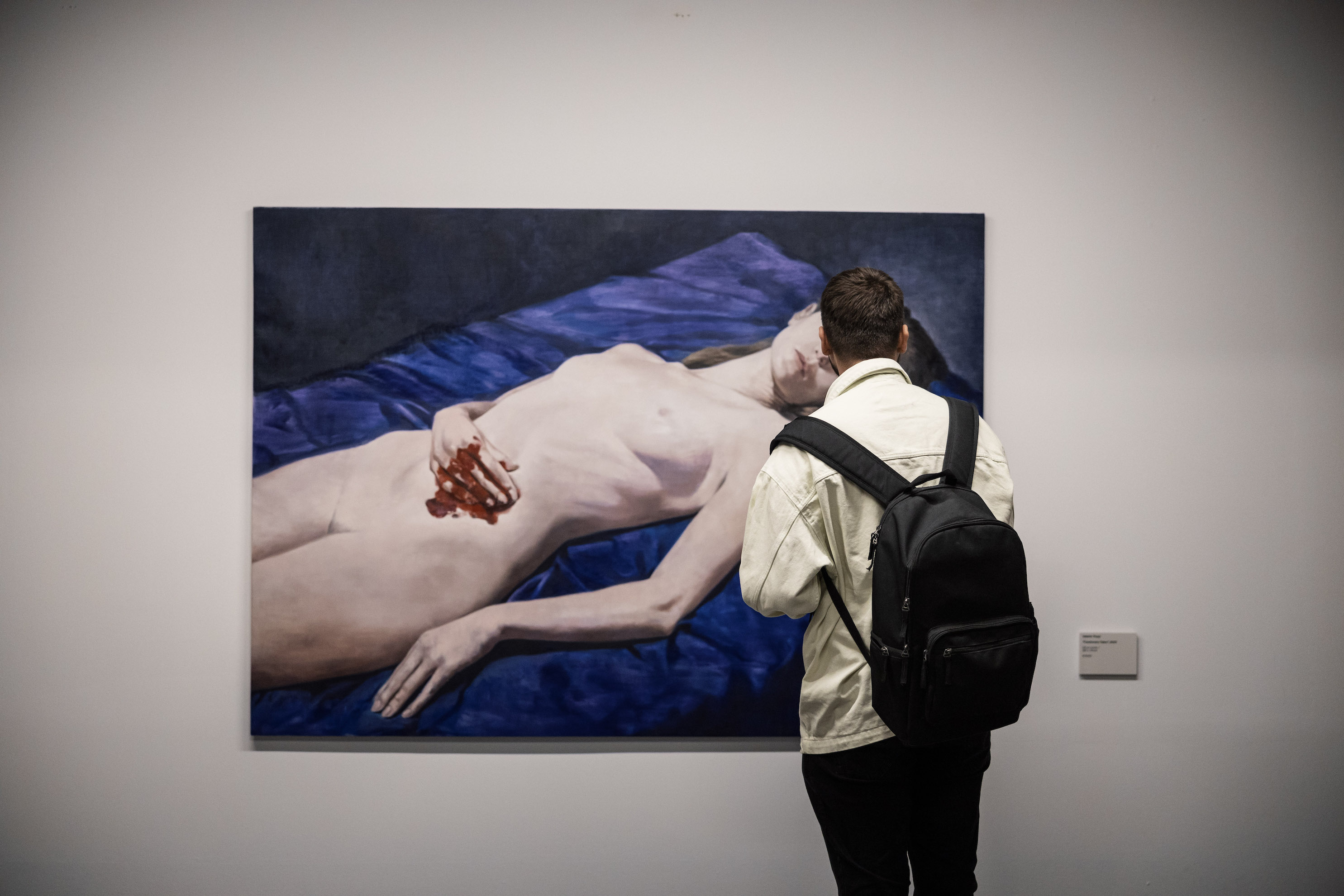
Photo from the opening night of the exhibition “I sing the body electric, the armies of those I love”. Credits: Sovran Nrecaj
A series of works, mainly paintings, are displayed on every wall and corner of the fourth floor of the Grand Hotel in Prishtina, where this exhibition is being held.
The numerous canvases present the body by giving messages in abstract forms. Some of these creations are made with a multitude of colors while some other through black and white drawings.
For the curator of this exhibition, Vesa Sahatçiu, the poem “I sing the body electric” by Walt Whitman had been an inspiration.
“When I thought about the exhibition and the space, I thought of Walt Whitman. For me “I sing the body electric” is a poem that sings the human body as a celebration of the body against problems and challenges that people have”, says Sahatçiu.
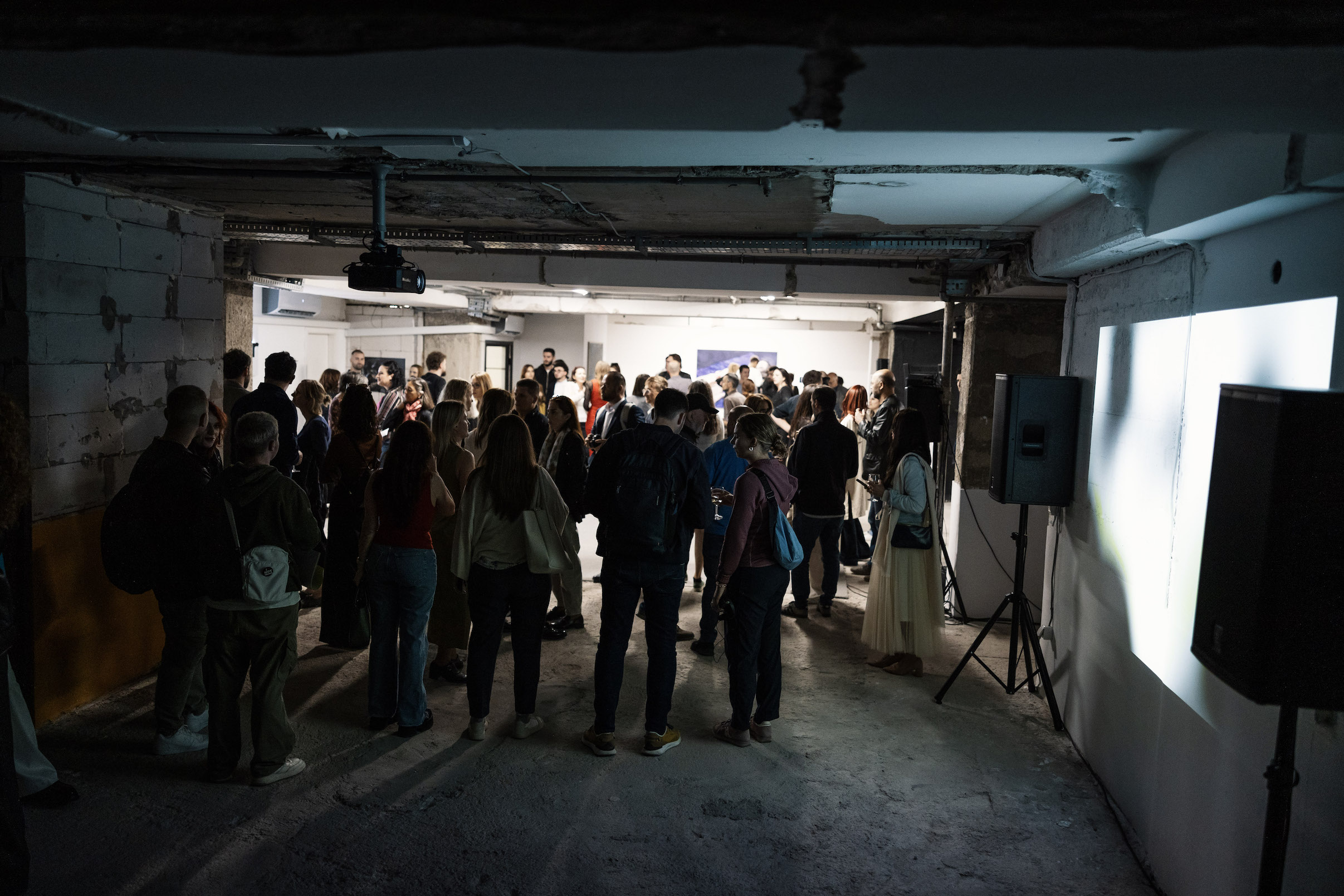
Photo from the opening night of the exhibition “I sing the body electric, the armies of those I love”. Credits: Sovran Nrecaj
“If you look at it in the context of when the poem was written, it was very important for America because they had a problem with slavery… even the issue of the body of people of color is an important issue, there,” she explains.
It was important for Sahatçiu to create a dialogue with the works and artists who are working today, to see what they are working on, what inspires them and other issues.
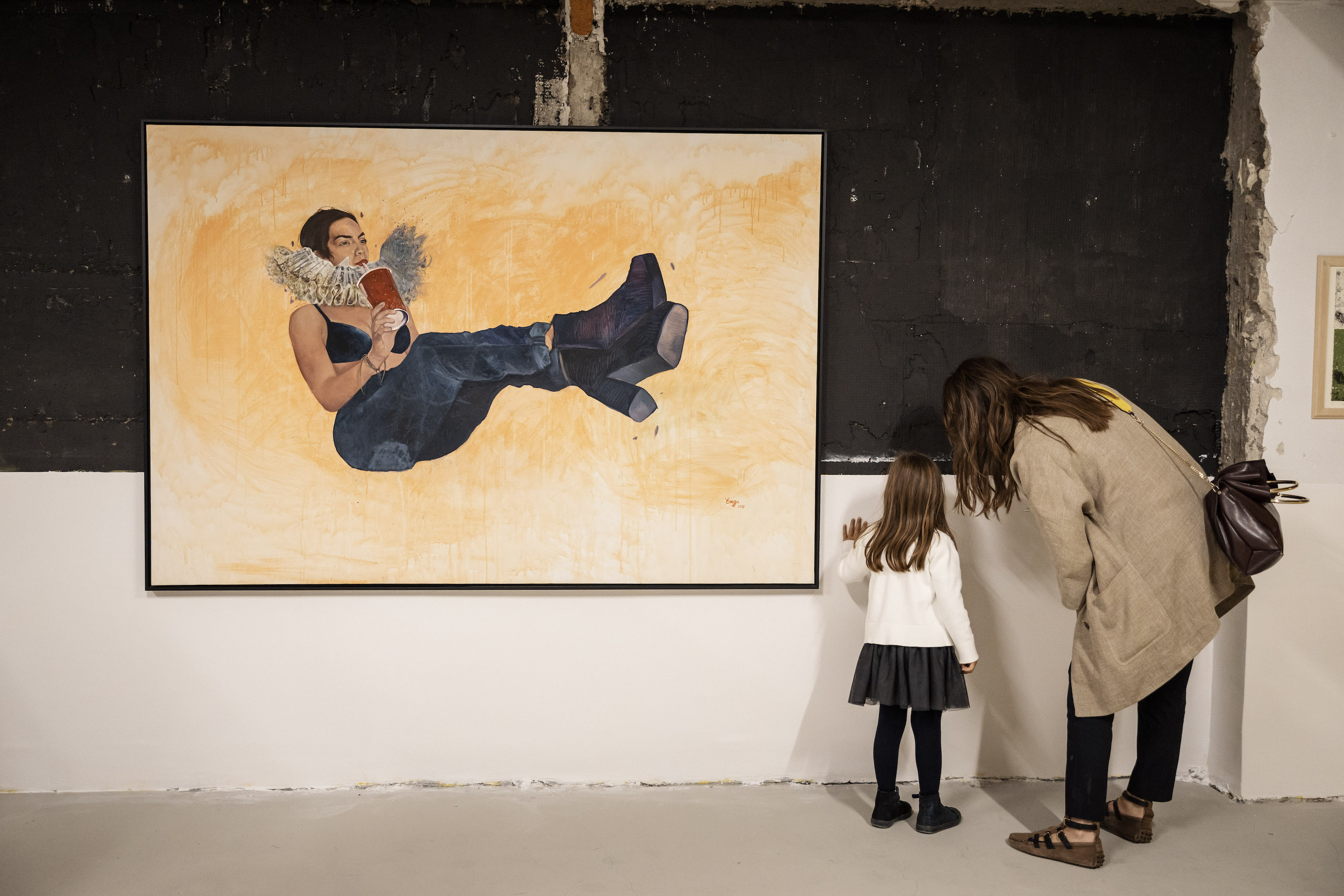
Photo from the opening night of the exhibition “I sing the body electric, the armies of those I love”. Credits: Sovran Nrecaj
When talking about the body, Sahatçiu states that the issue of body liberation, especially the liberation of the body from gender oppression, is a taboo topic almost everywhere.
“I think that the issue of identity politics, which is the body, the politicized body, the queer body, the woman’s body, etc. is a “hot potato” topic and a topic that is current and I think that it is appeared and seen in our artists who are operating today and exhibiting (their works)”, she adds.
The curator is satisfied with the progress of the exhibition, even though she claims that it is not easy to consolidate 21 works in one space. However Sahatçiu remains thankful to all the staff who helped her on this journey.
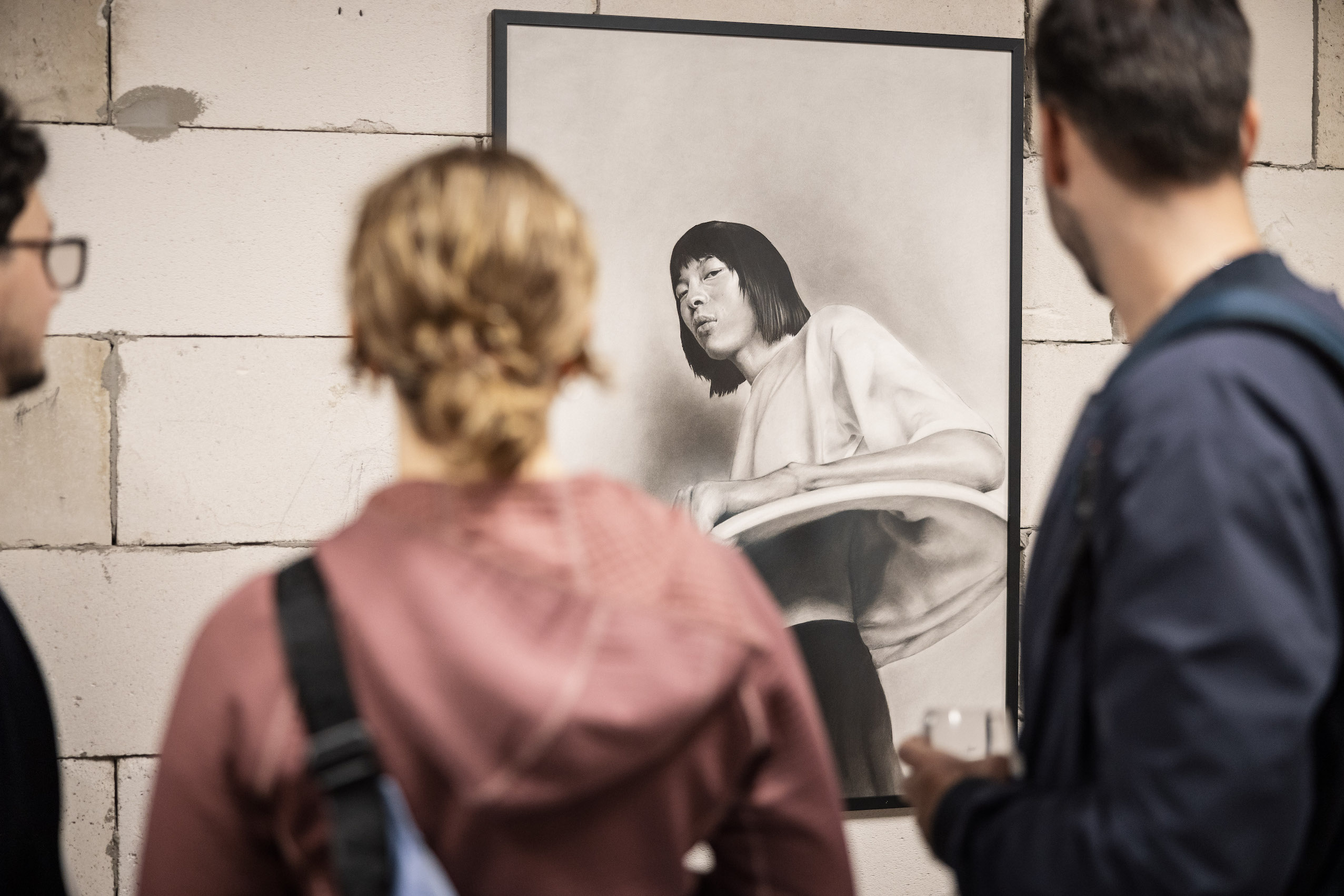
Photo from the opening night of the exhibition “I sing the body electric, the armies of those I love”. Credits: Sovran Nrecaj
“Expectations are turning out to be better than I thought, the feedback is quite positive, people are very interested in exhibitions, especially other young artists themselves, their friends, but also potential collectors… and for me this is the most important thing, curiosity about the works that are being exhibited”.
When asked if there are enough such exhibitions in Kosovo, and if the state gives enough importance to such works, Sahatçiu answers by saying that Kosovo needs independent art spaces, private galleries, and that it needs to expand beyond Prishtina and regionally.
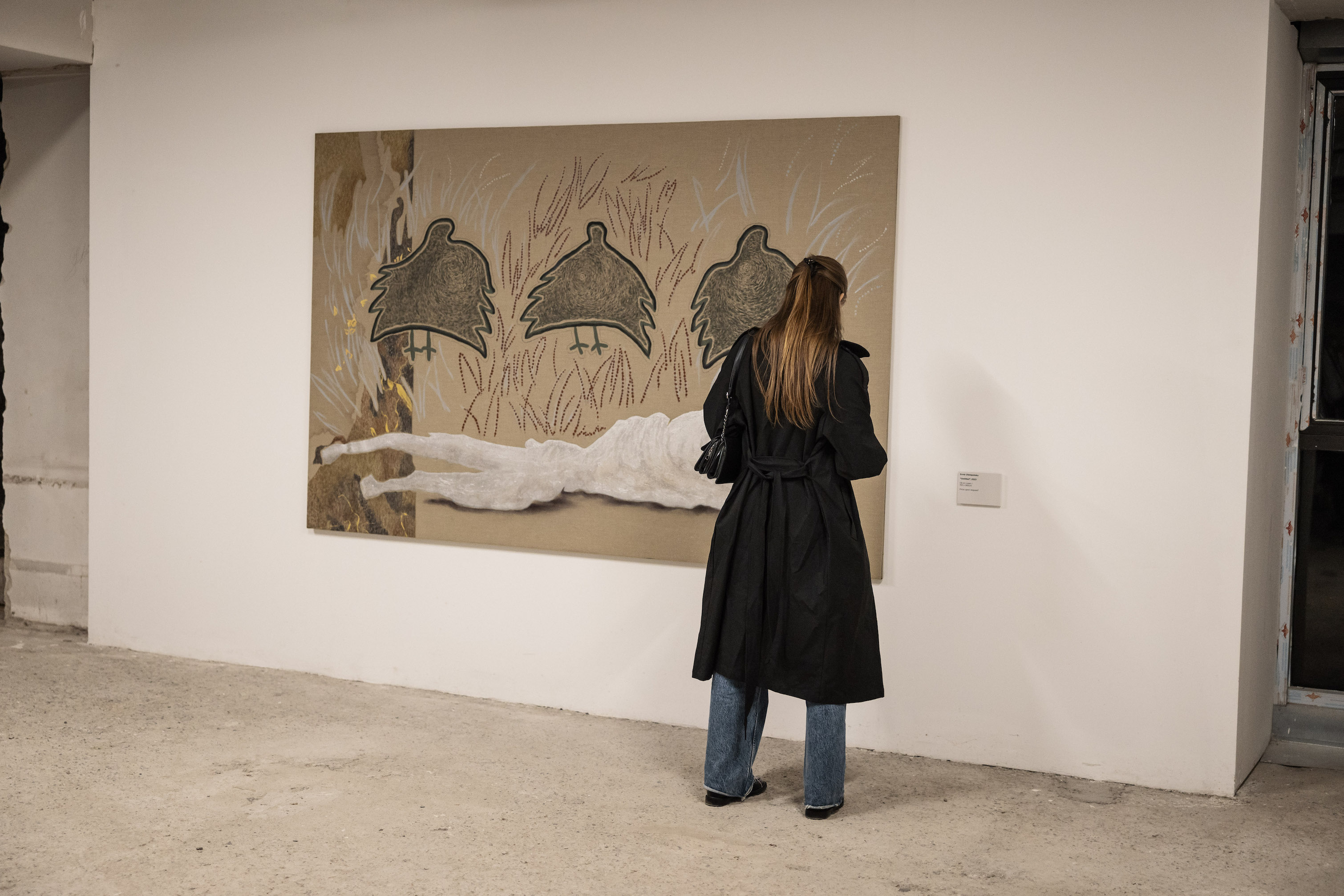
Photo from the opening night of the exhibition “I sing the body electric, the armies of those I love”. Credits: Sovran Nrecaj
“It is crucial that the art scene creates connections with other cities in the Balkans, not only from time to time, but in such a way for the connection to be more intensified and in that way a more dynamic scene is created that is not isolated, that is not only connected to the West but even [connected] with the region”, ends Sahatçiu.
This exhibition which is installed by Integra, Casa and Barabar Centre is part of the project “ArtSphere: Diversifying the Social Landscape Through Art” and its doors are open from Monday to Friday, from 12:00h to 18:00h.





